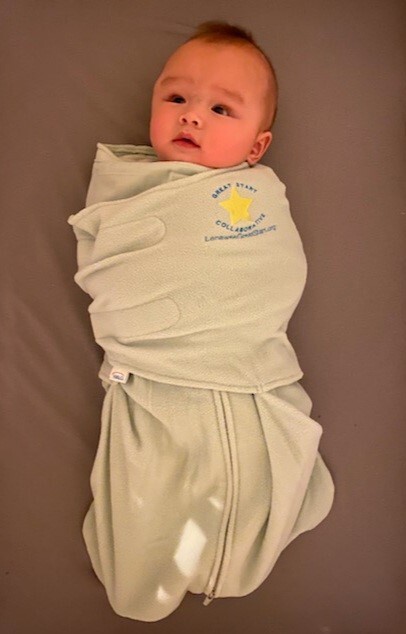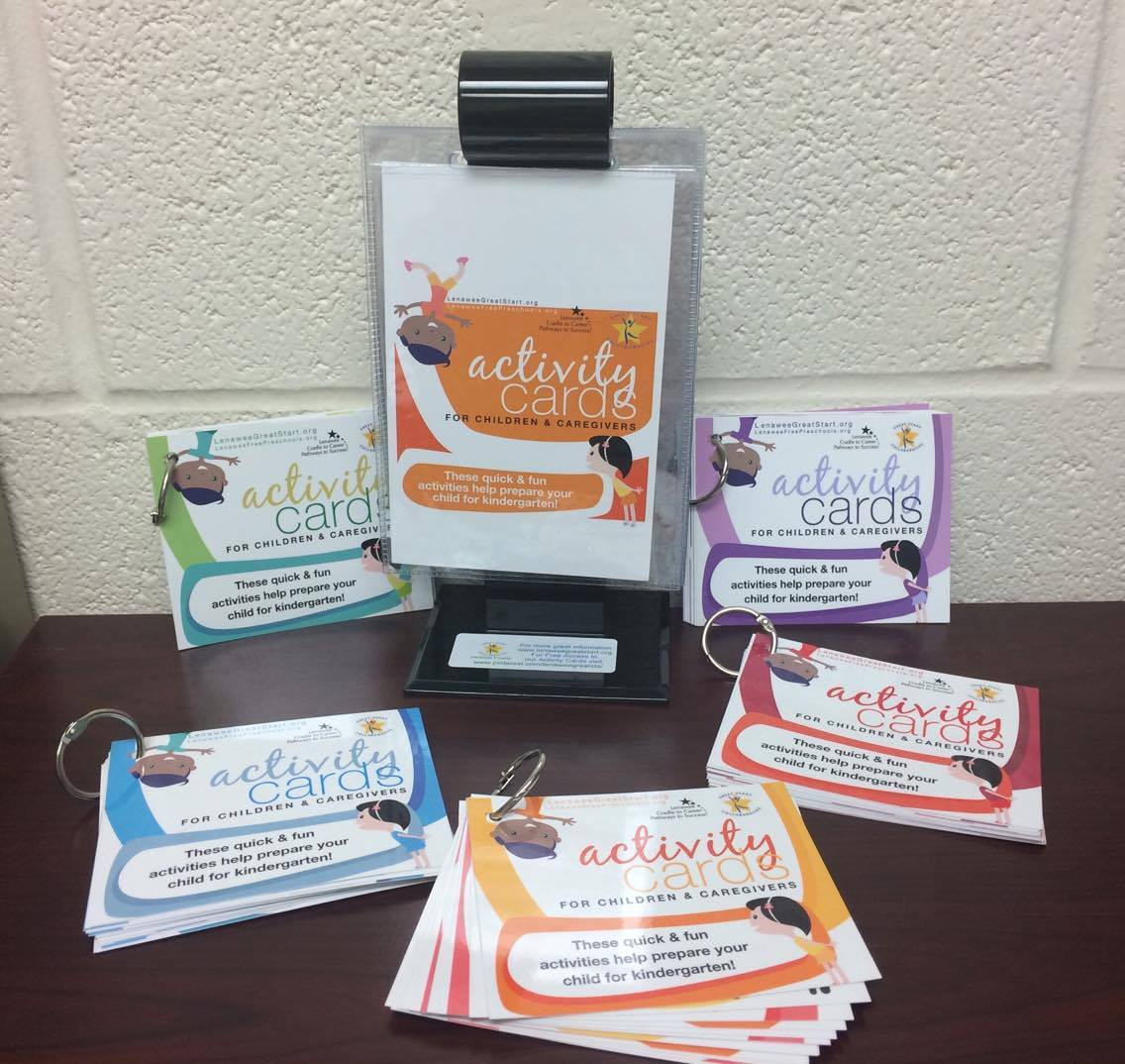Growing Kids
Pregnancy and Childbirth
Free Texting Service Provides Pregnancy Information
Text4baby is a free mobile information service designed to promote maternal and child health by providing pregnant women and new moms with information they need to take care of their health and give their babies the best possible start in life. Women who sign up for the service by texting BABY (or BEBE for Spanish) to 511411 will receive free SMS text messages each week, timed to their due date or baby's date of birth.
Creating a Birth Plan
A birth plan is a simple, clear, one-page statement of your preferences for the birth of your baby. Because there are so many aspects of birth to consider, it is best not to wait until the last minute to create your plan. You will want to discuss it with those who will support and care for you. The American Pregnancy Association has a great list of questions to consider.
Childbirth Classes - ProMedica Hickman Hospital
Shanda Keiser - Instructor
517-577-0300
Breastfeeding Support
La Leche League of Ann Arbor offers support and information through:
- Mother-to-Mother support
- Monthly meetings
- Telephone help from accredited leaders
- Lending library with books on childbirth, breastfeeding and related subjects
You can also visit or call the Community Action Agency - WIC offers free breastfeeding classes to the community (do not need to be WIC participant), lactation consultants and breastfeeding peer counselors. Coffective, a free mobile app, is a great resource for breastfeeding.
WIC (Women, Infants & Children)
Infant feeding specialists are available to help moms and babies with breastfeeding problems at your local WIC clinic. Breastfeeding mothers may qualify to
receive a free breast pump. Call 517-263-7861.
ProMedica Hickman Hospital - Lactation Consultant
Tami Gilbert, IBCLC
Available for inpatient and outpatient visits.
517-577-0300
Adrian Pediatrics Lactation visits
Angela Ford, IBCLC
517-366-5010
Care Pregnancy Center of Lenawee
One on one breastfeeding classes
517-263-5701
Health and Safety
Medications and Pregnancy
Many over-the-counter and prescription medicines can help your symptoms, but may hurt your growing baby's health. The Center for Disease Control (CDC) wants to make sure you know the latest information. Visit the "Treating for Two" webpage to find data and resources to help you find out what medicines and supplements are safe and which aren't.
Modify Caffeine Consumption During Pregnancy
According to the American College of Obstetricians and Gynecologists (ACOG), there is no link between moderate caffeine consumption and miscarriage or preterm birth. The impact of high levels of caffeine consumptions remains unclear, however. Moderate caffeine consumption is defined as less than 200mg or about 12 ounces of coffee. Caffeinated tea and most soft drinks have considerably less caffeine (less than 50mg) and an average chocolate bar has less than 35 mg. Daily consumption of over 200mg of caffeine would be considered a high level of caffeine intake.
No Smoking During Pregnancy
The American Journal of Preventive Medicine reports that prenatal smoking is one of the most common preventable causes of infant morbidity and mortality in the US. A 2002 study used data from more than three million live births in the US. Prenatal smoking was found to be significantly associated with preterm deliveries (5.3%-7.7%), low birth weight deliveries (13.1%-19%) and preterm-related deaths (5%-7.3%). View the prenatal smoking study online.
Information on Gestational Diabetes
Gestational diabetes affects about seven percent of all pregnancies in the US -- about 200,000 pregnancies each year. The National Diabetes Education Program (NDEP) and the Office of Research on Women's Health have teamed up to raise awareness of the fact that women who have had gestational diabetes are at increased risk for developing diabetes in the future, and their child is also at increased risk for obesity and type 2 diabetes. There are steps that a woman with a history of gestational diabetes can take to prevent or delay the development of diabetes for both herself and her child.
The Pregnant Woman's Guide to Buckling Up
The National Highway Traffic Safety Administration (NHTSA) has updated its online brochure, “The Pregnant Woman’s Guide to Buckling Up.” The brochure includes answers to key questions pregnant women may have about seat belt use, including how to wear a seat belt properly and information about air bags. The redesigned brochure also includes information about child passenger safety with tips about car seats and booster seats for children from infancy through age eight. For more information about seat belts or child passenger safety, visit the NHTSA website.
Early Head Start Home Visiting Program
The Early Head Start Home Visiting Program provides FREE services to Pregnant Mothers and children up to three years old. Home Visitors provide once a week in home services to support a positive parent child attachment and child development and growth. Home Visitors help mothers by providing information, linking mothers to community resources, and supporting mothers throughout the entire pregnancy and after the child is born.
To apply, call 517-263-1118.
Tiny Purpose - Perinatal Program
Tiny Purpose is a supportive program designed to help parents cope with difficulties that may occur during pregnancy and childbirth.
Contact Alaina Hiatt, Kristin Horky, or Renee Bangerter at
The Christian Mission, 517-265-5740
American Pregnancy Association
Have questions about getting pregnant, how to have a healthy pregnancy and how to explore options for an unplanned pregnancy? The American Pregnancy Association can help guide you through every pregnancy possibility.
Newborns and Infants
Infant Development
Emotional and Social Development: Birth to 3 Months
United Way Born Learning Age-Based Fact Sheets, Birth to Age 5
CDC Child Development Positive Parenting Tips
Early On of Michigan
If you're concerned about your child's development, don't worry, but don't wait. Lenawee's Early On staff can provide answers to your questions and help you to evaluate your child's development. Call 517.263.8931 or 888.444.8144.
Books for Your Baby!

Dolly Parton's Imagination Library will help you read with your child. It sounds almost too simple ot be true, but by reading regularly with your children during their preschool years, you are giving them the biggest boost toward a successful education they will ever get. If you are not sure you can afford books for your child, the Imagination Library and Lenawee Community Foundation will make it happen, every month! Sign up and each month a new, carefully select book will be mailed in your child's name directly to your home. Get started on your reading adventure:
Imagination Library Form - English
Imagination Library Form - Spanish
Great Resources for New Parents
The American Academy of Pediatrics has a great website with tips on your new baby, including how to deal with bathing & skin care, feeding & nutrition, colic & crying,and much more. Visit the Baby page on the Healthy Children website.
Similarly, if you are a first-time parent and worried about how to hold or burp your baby, visit the KidsHealth website for some guidance on all things newborn.
The National Institute of Health has a website explaining the importance of Well Child visits and what to expect at these visits to your child's pediatrician.
Wondering about safety issues? There are some helpful guides on child, home, and neighborhood safety available at the ACLS website.
Safer Spaces for Baby

Effective June 2011, federal regulators banned the sale and use of drop-side cribs. These cribs have reportedly caused more than 30 infant deaths in 10 years, USA Today reports. These cribs made it easier to get babies in and out, but have trapped and caused serious injury and death to infants, particularly, when the cribs have broken pieces.
To learn how to create safer spaces for your babies, take a look at the U.S. Consumer Product Safety Commission's Safer Spaces for Baby tip sheet.
Safe to Sleep
If you just had a baby, are expecting, or are taking care of a young infant it's important to create a safe sleep environment for your baby. Because babies spend much of their time sleeping, the nursery should be the safest room in the house. Take a few moments to learn about safe sleep.
With any crib, bassinet or play yard, follow a few simple rules to keep babies sleeping safely. Bare is Best!
- To prevent suffocation, never place pillows or thick quilts in a baby's sleep environment.
- Make sure there are no gaps larger than two fingers between the sides of the crib and the mattress.
- Proper assembly of cribs is paramount - Follow the instructions provided and make sure that every part is installed correctly. If you are not sure, call the manufacturer for assistance.
- Do not use cribs older than 10 years or broken or modified cribs. Infants can strangle to death if their bodies pass through gaps between loose components or broken slats while their heads remain entrapped.
- Set up play yards properly according to manufacturers' directions. Only use the mattress pad provided with the play yard; do not add extra padding.
- Never place a crib near a window with blind, curtain cords or baby monitor cords; babies can strangle on cords.
The Safe to Sleep® campaign, formerly known as the Back to Sleep campaign, focuses on actions you and others can take to help your baby sleep safely and to reduce your baby’s risk of Sudden Infant Death Syndrome (SIDS) and other sleep-related causes of infant death.

Dental Care
Establishing the importance of dental care early on with your child will help prevent future dental issues such as cavities and gum disease. Parents should ensure their child is bruising at least twice a day. Make sure your child is up to date with their dental visits.
Check out these local resources for tips and to schedule a dental visit for your child.
Smiles on Wheels
Toddlers
Toddler Development
Emotional Development: One-Year-Olds
Social Development: One-Year-Olds
Emotional Development: Two-Year-Olds
Social Development: Two-Year-Olds
United Way Born Learning Age-Based Fact Sheets, Birth to Age 5
CDC Child Development Positive Parenting Tips
Early On of Michigan
If you're concerned about your child's development, don't worry, but don't wait. Lenawee's Early On staff can provide answers to your questions and help you to evaluate your child's development. Call 517.263.8931 or 888.444.8144.
Toddler Resources
Activities To Do With Your Toddler - This is a great website of ideas for toddler activities.
Toddler Potty Training Strategies
Don't forget our local playgroups and Event Calendar!

Books for Your Toddler!

Dolly Parton's Imagination Library will help you read with your child. It sounds almost too simple ot be true, but by reading regularly with your children during their preschool years, you are giving them the biggest boost toward a successful education they will ever get. If you are not sure you can afford books for your child, the Imagination Library and Lenawee Community Foundation will make it happen, every month! Sign up and each month a new, carefully select book will be mailed in your child's name directly to your home. Get started on your reading adventure:
Imagination Library Form - English
Imagination Library Form - Spanish
Special Needs
The Lenawee Intermediate School District provides special education evaluations and support services for children birth to age 5. Families or school personnel can call 517-263-8931 to set up screening appointments or visit the LISD Early Childhood Special Education webpage to learn more.

Preschool Years
Preschool-Age Development (Ages 3-5)
Emotional Development: Preschoolers
Social Development: Preschoolers
United Way Born Learning Age-Based Fact Sheets, Birth to Age 5
CDC Child Development Positive Parenting Tips
Special Needs
The Lenawee Intermediate School District provides special education evaluations and support services for children birth to age 5. Families or school personnel can call 517-263-8931 to set up screening appointments or visit the LISD Early Childhood Special Education webpage to learn more.
Why Preschool?

In preschool, your child will learn to share, follow instructions and build the foundation for school learning.
- Preschool Prepares Children for Kindergarten
Preschool provides a foundation for learning both socially and academically that will help your child succeed in elementary school. - Preschool Promotes Social and Emotional Development
Young children learn social skills and emotional self-control in "real time." Three- and 4-year-olds learn through their experiences and good teachers make time for those "teachable moments" when they can help children learn to manage frustrations or anger. They don't automatically step in to resolve children's conflicts for them; they have a well-honed sense of when to let children work out their own problems and when to intervene. - The Preschool Environment is Structured
A structured environment helps young children learn to make friends and play well with others. The structure of a high-quality preschool classroom is largely invisible to children. Classroom space is organized to encourage social interaction, and minimize congestion and conflicts. - Children Get to Make Choices
Children have several choices of activities; a child who is wandering aimlessly is encouraged to choose one that interests him. Teachers are alert to a child who can't figure out how to enter other children's play and may offer him suggestions on ways to join the group. - Children Learn to Take Care of Themselves and Others
In a high-quality preschool program, children are introduced to the behaviors required to function successfully in a kindergarten classroom. For example, during group activities such as "circle time," children learn to focus attention on the teacher, listen while others are speaking, and wait their turn to talk. - Preschool Promotes Language and Cognitive Skills
Preschool-age children's language skills are nurtured in a "language-rich" environment. Between the ages of 3 and 5, a child's vocabulary grows from 900 to 2,500 words, and her sentences become longer and more complex. Children have many opportunities to sing, talk about favorite read-aloud books, and act out stories. - Preschool Teachers Nurture a Child's Curiosity
Preschool-age children have active imaginations and learn through make-believe play. The imaginary play area in a high-quality preschool is well-stocked with costumes, "props," and child-size household items such as stoves, sinks and cupboards. It's often in this activity area that preschool-age children progress steadily from solitary play, to one-on-one play, to complicated group play. - Preschool Activities Boost Pre-Math and Literacy Skills
Young children show growing interest in pre-math and pre-literacy skills. To sustain children's excitement and motivation for learning, high-quality preschool and child care programs introduce early literacy and math skills not as isolated exercises, but in the context of activities that are interesting and meaningful to children. - Preschool Provides Opportunities to Develop Motor Skills
Physical coordination improves, allowing the child to explore her environment — and to challenge herself-in new ways. High-quality preschool programs provide several opportunities daily for children to run, climb, and play active games. Activities are offered to help children develop fine motor skills, such as threading beads or cutting with scissors. And children are challenged through a variety of activities to build their hand-eye coordination and balance.
Where to start?
To find the best preschool for you child, start your search early.
Ten Signs of a Great Preschool
Great Start to Quality is the best tool for families in Michigan looking for child care or preschool, as all licensed and registered program and providers, including Head Start and Great Start Readiness Programs, are listed in a free and easy-to-use search engine.
Great Start Readiness Program - Do You Qualify?
The Great Start Readiness Program (GSRP) is a state-funded preschool program for children who will be 4 on or before September 1st and who are at-risk for future educational difficulties. Some examples of risk factors include developmental immaturity; a long-term or chronic illness; and an unemployed parent, single parent, incarcerated parent or teen-age parent. There is no cost for this program. Lenawee County offers both school-day program and a part-day program. Fill out this online GSRP interest form as a first step. Contact Lenawee Great Start (517-266-4821) for further information.
Lenawee GSRP Locations
Adrian
- Adrian Community Preschool (876 Addison St., Adrian) 517-263-8676
- Adrian Head Start (340 East Church Street, Adrian) 517-263-2468
- Birth Toddlers & Beyond (1646 Sand Creek Hwy, Adrian) (517) 265-6264
- Madison Elementary (3498 Treat Highway, Adrian) 517-263-0741
- LISD Trenton Hills (1008 W. Maple Ave, Adrian) 517-263-6354
- Lenawee Intergenerational Learning Academy Too (1100 Sutton Rd. Adrian) 517-918-5422
Britton/Deerfield
Britton Elementary (201 College Ave., Britton) 517-451-4581
Blissfield
- Blissfield Elementary (640 South Lane Street, Blissfield) 517-486-2811
- Lenawee Intergenerational Learning Academy (700 W. Adrian St. Blissfield) 517-918-5422
Clayton
- Little Creations Preschool Daycare (3641 State St. Clayton) 517-306-3279
Hudson
- Birth Toddlers & Beyond (709 Jefferson, Hudson) 517-448-3506
Morenci
- Morenci Elementary School (517 E. Locust St, Morenci) 517-458-7504
Onsted
- Onsted Schools (10109 Slee Road Onsted) 517-467-2895
Tecumseh
- Tecumseh South Early Learning Center (2780 Sutton Rd, Adrian) 517-424-9957
- LISD Porter Center (2946 Sutton Rd, Adrian) 517-263-8931
- Cozy Kids Preschool and Child Care (3651 W. Russell Rd, Tecumseh) 517-815-1146
Immunization and Physical Requirements for Preschool & Childcare
The State of Michigan requires certain immunizations for children attending childcare centers or preschool programs. Go to the CDC Immunizations page for details, including a "catch up" immunization schedule. If you live in Michigan, request an official immunization record here.
Please note that the State of Michigan now requires parents who request a non-medical waiver for immunizations to speak with a local health educator.
Children must have an updated medical physical to attend a licensed childcare or preschool program. An authorized medical examiner must complete the form, front and back with in the first 30 days of attending a program.
Activity Cards

Lenawee Great Start has partnered with the Lenawee Cradle to Career initiative to develop activity cards that offer enjoyable, affordable, and easy ways to help your child prepare for kindergarten. We have gathered information from the Brigance Screener, a measurement tool used across the county to determine Kindergarten readiness, as well as from parents, caregivers and educators that attended our School Readiness work group.
If you need more ideas and activities to help prepare your child for Kindergarten, check out our FREE Activity Cards on Pinterest. By doing just a few of these activities each day with your child, you are helping to make sure that he/she is getting a Great Start and will be prepared for kindergarten.
